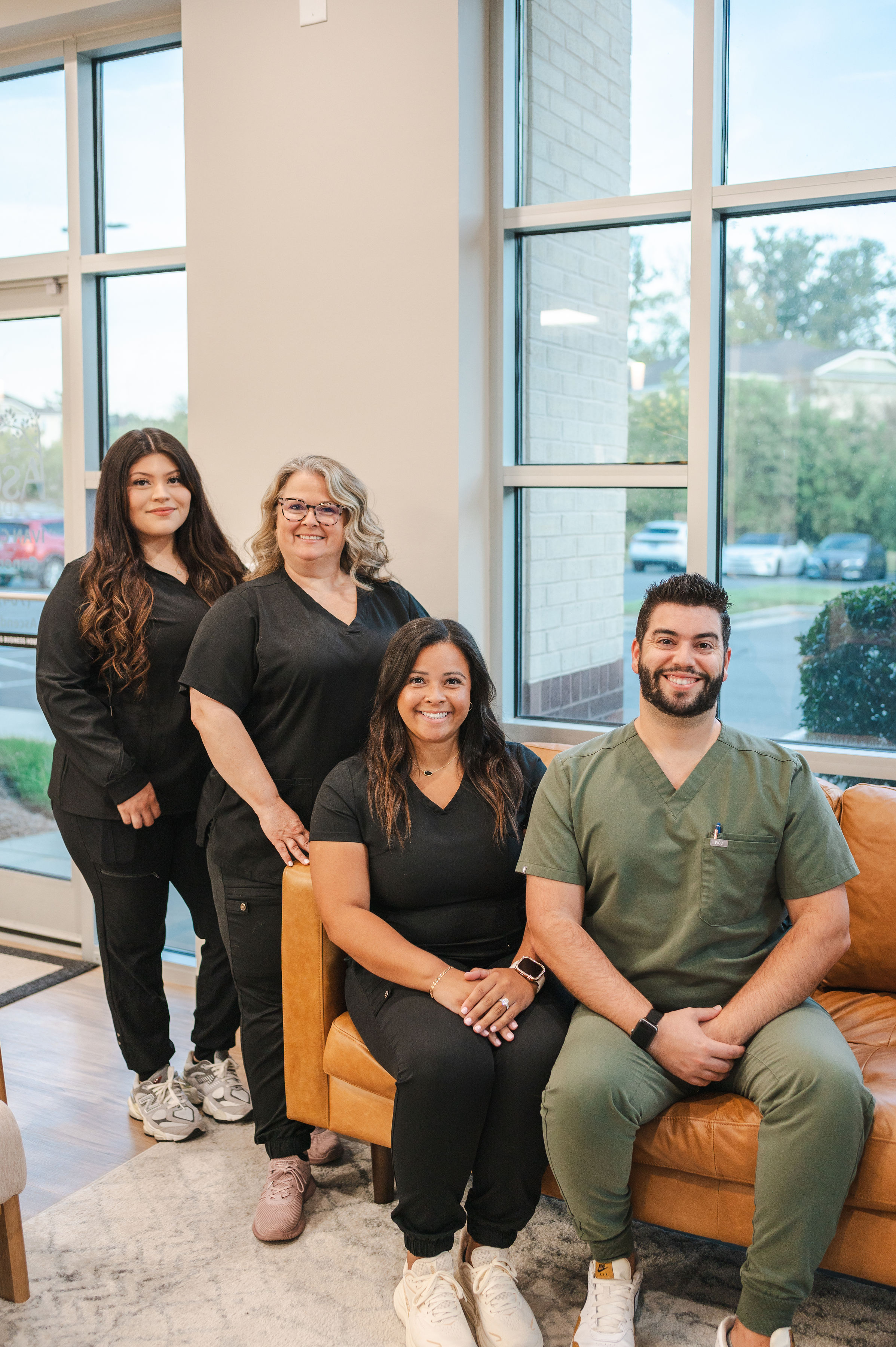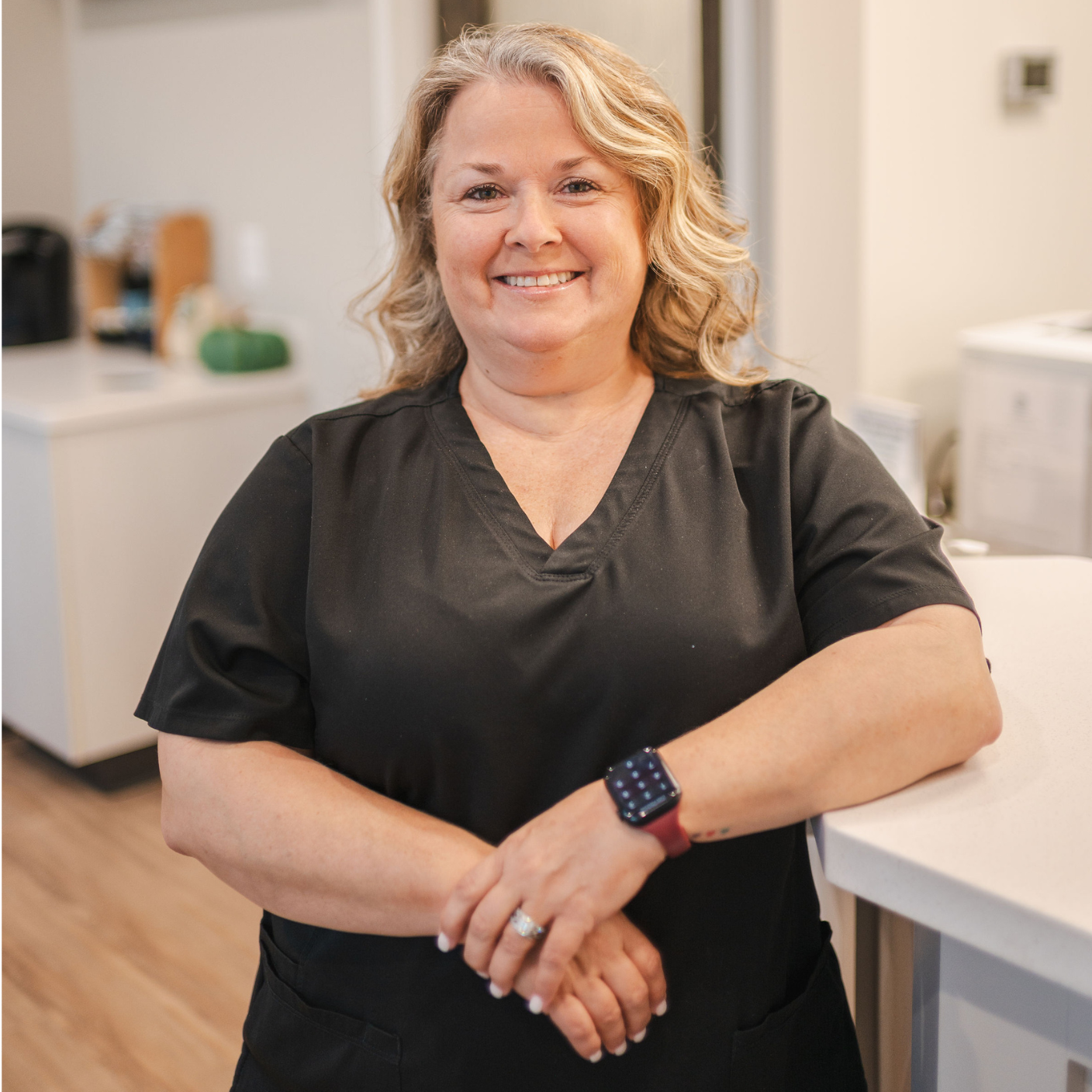Why People Love Ascend Dentistry

Why You Need a Comprehensive Oral Examination
A comprehensive oral examination goes beyond routine checkups, offering a complete evaluation of your mouth, teeth, gums, and surrounding tissues. It’s essential for diagnosing underlying issues, such as tooth decay, gum disease, tooth loss, and even early signs of oral cancer. We recommend getting a dental health checkup every six months to keep your smile healthy and vibrant.
During the dental oral examination, our skilled team will use advanced diagnostic tools, such as cone beam computed tomography, to assess your bone structure, teeth alignment, and overall oral hygiene.
What Happens During a Comprehensive Oral Examination?
Your comprehensive oral examination at Ascend Dentistry will include a range of assessments and diagnostics:
- Intra Oral Examination: We closely examine your teeth, gums, tongue, and oral tissues for signs of disease or abnormalities.
- Oral Cancer Screening: We’ll check for early signs of oral cancer and other head and neck cancer concerns.
- Teeth Cleaning: As part of your visit, we’ll perform a teeth cleaning to remove plaque, calculus, and other harmful deposits that can lead to tooth decay and periodontal disease.
- Medical History Review: We’ll evaluate your medical history to assess risk factors like diabetes, cardiovascular disease, or bruxism (teeth grinding).
Restorative Dentistry Needs: If necessary, we’ll discuss restorative dentistry solutions like crowns, bridges, or dentures to restore function and aesthetics to your smile.


Benefits of Regular Oral Exams
Routine oral exams are essential for preventing serious dental problems down the line. Early detection of periodontal disease, tooth decay, and even oral cancer can significantly improve treatment outcomes and help you avoid more invasive procedures like root canals or oral surgery.
We follow the American Dental Association guidelines to ensure every patient receives a thorough evaluation, tailored to their individual needs. Our exams also help with diagnosing sleep apnea, bruxism, and conditions like temporomandibular joint disorders (TMJ).
Take Your Smile to a Whole New Level

Flexible Solutions Tailored to You
Continuous Care for Lasting Oral Health

Do You Take My Insurance?

Free Consultations to Explore Your Options
Frequently Asked Questions
What does a comprehensive oral exam include?
A comprehensive oral examination includes a detailed review of your mouth, teeth, gums, and surrounding areas. This includes checking for tooth decay, gum disease, oral cancer, and abnormalities in your jaw, bone, and tissue.
What does "comprehensive" mean in dental terms?
In dental terms, comprehensive means a full evaluation of your oral and dental health. This includes assessments of your teeth, gums, jaw, tongue, and oral tissues, along with diagnostics for potential issues like tooth decay, gum disease, and oral cancer.
How long should a comprehensive dental exam take?
A comprehensive oral examination typically takes around 45 minutes to an hour, depending on the complexity of the patient’s oral health and whether additional diagnostics, such as oral cancer screenings or imaging, are required.
How do I study for an oral comprehensive exam?
While dental oral examinations do not require the patient to study, it’s important to maintain good oral hygiene leading up to your exam. Brushing, flossing, and regular teeth cleaning are vital for keeping your mouth healthy between visits.
Why are regular oral exams important?
Regular oral exams help catch dental issues before they become serious. Early detection of tooth decay, gum disease, and oral cancer can make treatments more effective and less invasive.
How often should I have a comprehensive oral exam?
It is recommended to have a comprehensive oral examination once a year. However, if you have a history of periodontal disease or other oral health concerns, you may need more frequent exams.
Does a comprehensive oral exam include cancer screening?
Yes, a comprehensive oral examination includes screening for oral cancer. This involves checking your gums, tongue, and other oral tissues for early signs of cancer or other abnormalities.







